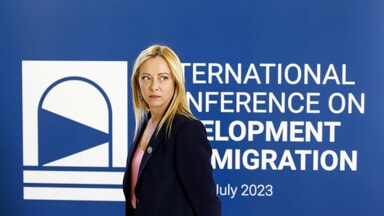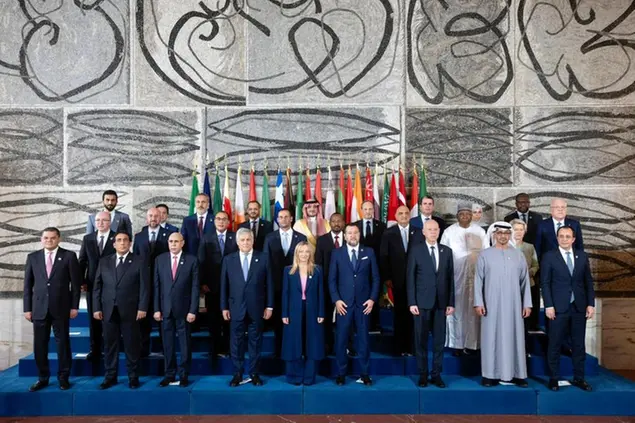
The Rome Process to Ensure Africa’s Development and Relations with Europe.
 Rome’s historical significance is beyond dispute: the capital of the Roman Empire, a central hub of Christianity, and the birthplace of much of today’s Western civilization. Its historical role, among many reasons, also owes to its geographic location, being at the heart of the Mediterranean Sea, serving as a bridge between Europe and Africa for millennia, uniting peoples and cultures.
Rome’s historical significance is beyond dispute: the capital of the Roman Empire, a central hub of Christianity, and the birthplace of much of today’s Western civilization. Its historical role, among many reasons, also owes to its geographic location, being at the heart of the Mediterranean Sea, serving as a bridge between Europe and Africa for millennia, uniting peoples and cultures.
It comes as no surprise, therefore, that the Meloni Government is striving to restore Rome’s pivotal role, and by extension, Italy’s. In this context, two significant events stand out: the FAO Summit and, above all, the International Conference on Development and Migrations. While the former is an event organized by the United Nations with evident implications for the relationship between Europe and Africa, the latter is an initiative of the Government aimed at networking the political and economic governance of Mediterranean partner countries to discuss the development of a crucial region.
To name a few participants, the heads of state from Tunisia, Cyprus, and Mauritania were present, along with the prime ministers of Libya, Ethiopia, Egypt, Malta, and Algeria. The foreign ministers of Morocco and Turkey, as well as Greece’s Minister for Migrations, also attended. High-ranking European institutions were represented by Ursula von der Leyen and Charles Michel. The Arab world was well-represented both politically (notably with the presence of the head of state of the United Arab Emirates) and economically, as evidenced by the attendance of the Director General of the Arab Fund for Economic and Social Development and the President of the Islamic Development Bank.
Meloni’s project is clear: to embark on an international path aimed at designing and implementing concrete measures that, on one hand, promote the growth and development of the crucial Mediterranean region and, more broadly, the entire African continent, and on the other hand, enable a gradual reduction of migration flows for the improved well-being of the African population. All of this while moving away from the post-colonial logic that may have influenced previous bilateral relationships between European states and African countries.
“Today begins the Rome Process, which must strengthen dialogue among us, always remaining open. I want to be clear: today we inaugurate a dialogue between equals, based on mutual respect. The relationship between Europe and the Mediterranean is not and cannot be a competitive one,” says Giorgia Meloni, relaunching the dialogue on migration. “We have often approached the issue of migration and illegal immigration as something that opposed countries of origin and transit to those of destination. But it is not so. Mass illegal immigration harms everyone; no one benefits from it except criminal organizations that profit from the vulnerability of the weakest. The most important thing of all is to create broad cooperation to support development in Africa and the countries of origin, addressing the roots and deep causes of migrations”.
The proposals that emerged from the meeting with Arab-African institutions are crystal clear: strengthening collaboration between police forces and judicial authorities to identify and prosecute human traffickers; updating legislation; coordinating intelligence structures to identify criminal networks; and providing new opportunities for legal migration that take care of the fate of those who arrive in European countries intending to shape their future.
Despite some controversies surrounding migration, the Meloni Government has made significant strides in this direction. Firstly, it has issued a three-year Migration Decree, simultaneously increasing the quotas for legal entries. Additionally, although yet to be formally sanctioned, additional quotas have been envisaged for countries collaborating with Italy to stop illegal departures. Furthermore, extra admission slots will be allocated for all those workers who undergo training courses before departure. This project requires institutional strength (hence the invitation and participation of community and supranational institutions) and financial resources, which can be provided by investment funds and banks that have a significant presence in Africa. A challenge that must be won.



 Subscribe
Subscribe